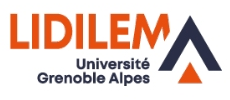Lexical plurals for aggregates of discrete entities in English: why plural, yet non-count, nouns?
Résumé
This paper studies why, for a plurality of discrete entities, a non-count plural might be preferred over a count noun or a non-count singular. Building partly on Wierzbicka (1985, 1988), it proposes two parameters: semantics, but also morphology. With lexical plurals, the items are construed as being of different kinds (vs. count nouns) and the focus is on the plurality of items rather than on a common purpose (vs. non-count singulars). For morphology, the notion of ‘attractor’ is proposed for some patterns which partly motivate the [+/-count] and number features. A collateral finding is that the plural of lexical plurals can be unstable: some nouns ending with -s undergo reanalysis as morphological plurals, while Latin plurals tend to be reanalysed as singulars. It is suggested that this trend confirms the semantic values of singular and plural numbers, as well as the influence of the morphological parameter on number and construal.
Fichier principal
 Gardelle Laure - lexical plurals_aggregates of discrete entities.pdf (120.17 Ko)
Télécharger le fichier
Gardelle Laure - lexical plurals_aggregates of discrete entities.pdf (120.17 Ko)
Télécharger le fichier
Origine : Fichiers produits par l'(les) auteur(s)

